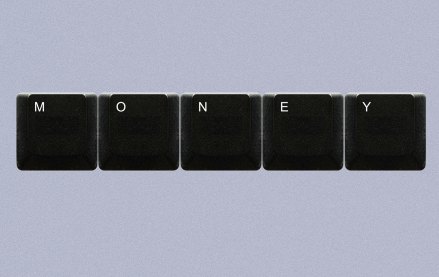Publishers drop paywalls and release editorial packages to coincide with Earth Day

Earth Day, which falls on April 22, is a convenient annual marker for companies to announce their pledges around sustainability and the environment. Media companies are no different, and this Friday they are lifting paywalls and announcing editorial packages to coincide with the yearly event.
These initiatives build on what media companies did to boost climate change coverage in the lead-up to the 26th United Nations Climate Change Conference (COP26), which took place in November 2021. Around that time, publishers were also seeing more requests from advertisers to pitch campaigns or sponsorship opportunities around their solutions-based climate and sustainability journalism. And earlier this year, the AP and The Washington Post were working on hiring more than 20 people to contribute to climate and extreme weather coverage.
Key hits:
- The Washington Post has dropped its paywall for three days leading up to Earth Day.
- Condé Nast announced new sustainability commitments to meet its goal to become carbon neutral by 2030.
- Bloomberg is hosting its annual climate-centric summit next week.
- Vox Media’s Recode and Group Nine’s NowThis are focusing editorial initiatives on climate coverage.
Bloomberg
Bloomberg Live is hosting its annual Bloomberg Green Summit on April 27, featuring key figures in the climate industry. Registration to the hybrid event is free, for those attending in-person and virtually. The event’s premier partners (one of the sponsorship tier packages Bloomberg sells to advertisers) are Holcim and JLL. The publisher did not share the financial agreement.
Condé Nast
The publisher announced a new set of sustainability commitments on April 21, as part of its plan to become carbon neutral by 2030, a strategy first announced in 2020. Its new commitments include, in part:
- Only accepting ads from energy companies promoting renewable energy products and technologies, or ads encouraging audiences to transition to renewable energy (and other more environmentally-friendly solutions).
- Eliminating single-use plastic packaging by 2025. The company says it has eliminated more than 90% of single-use plastic globally and 100% of the paper used to produce the company’s print across its owned operations is certified (FSC and/or PEFC-certified).
- Only using paper internationally certified as sourced from responsibly managed forests.
- Appointing a network of “global editorial ambassadors for sustainability,” to focus on sustainability across the company’s media brands and editorial verticals including lifestyle, beauty, tech and innovation, food and fashion.
Multiple Condé Nast offices, including those in New York City, London, Germany, Italy and Spain have transitioned to 100% renewable energy.
Covering Climate Now
The journalism coalition has worked with its partner outlets including The Guardian, The Nation, Columbia Journalism Review, ABC News, CBS News, NBC News, VICE, Now This, Al Jazeera, Times of India, Taz and The Daily Maverick to run stories from April 11 through April 22 on the climate crisis and its ties to democracy, as part of its series leading up to Earth Day called “Climate & Democracy.” It includes an interview with U.S. Congressman Jamie Raskin, Democrat of Maryland, conducted by Reuters, the Guardian and Climate One public radio.
Vox Media
Vox Media’s tech news vertical Recode unveiled a week-long editorial package on April 18 focused on the intersection of tech and climate, and the ways in which technology has contributed to the climate crisis and could also help solve it. The coverage ranges from the sustainability of cryptocurrency and batteries, to restoring coral reefs.
Social media-focused news brand NowThis is posting videos hosted by people who work in organizations working to improve the climate to TikTok and other social platforms, documenting the ways the climate crisis has impacted society. One TikTok video shared on the NowThis Earth channel (a NowThis vertical created in Sept. 2020 in partnership with Earth HQ, the media arm of the Global Commons Alliance) — on the continuing impact of the BP Deepwater Horizon oil rig explosion 12 years ago — is hosted by Diane Hoskins, campaign director at Oceana, an advocacy organization dedicated to ocean conservation. Another is hosted by Erin Axelrod, project director at Trees for Climate Health, on reforestation. NowThis Earth’s TikTok channel was created in September 2021, with a focus on issue-specific content to help viewers better understand the climate crisis, a NowThis spokesperson said.
The Washington Post
The Washington Post has lifted its paywall from April 20 to 22 to commemorate Earth Day. The last time the Post lifted its paywall was in March when it made its website free to access for those in Russia and Ukraine. It was the first time The Post had lifted its paywall for a specific region.
“For those unfamiliar with our comprehensive reporting on these global issues, Earth Day is a moment when we want people to explore our journalism without any commitment,” Michael Ribero, chief subscriptions officer at The Washington Post, said in an email. By removing the paywall barrier to access the Post’s coverage, Ribero said the team believes “many of these readers will become more frequent visitors and even subscribers after they experience our journalism more deeply.”
Dropping the paywall is also a way to test what drives people to subscribe. “We’re constantly experimenting with different strategies, with a mindset that our model to attract readers and subscribers should match the innovation in the newsroom and represent what consumers want,” Ribero said.
More in Media

From sidelines to spotlight: Esports events are putting creators center stage
Esports events’ embrace of content creators reflects advertisers’ changing priorities across both gaming and the wider culture. In the past, marketers viewed esports as one of the best ways to reach gamers. In 2025, brands are instead prioritizing creators in their outreach to audiences across demographics and interest areas, including gaming.

Condé Nast and Hearst strike Amazon AI licensing deals for Rufus
Condé Nast and Hearst have joined the New York Times in signing a licensing deal with Amazon for its AI-powered shopping assistant Rufus.

Media Briefing: AI payouts may be entering a new era
AI compensation is evolving — and new models, not just publisher demands, are driving the shift beyond flat-fee licensing.





